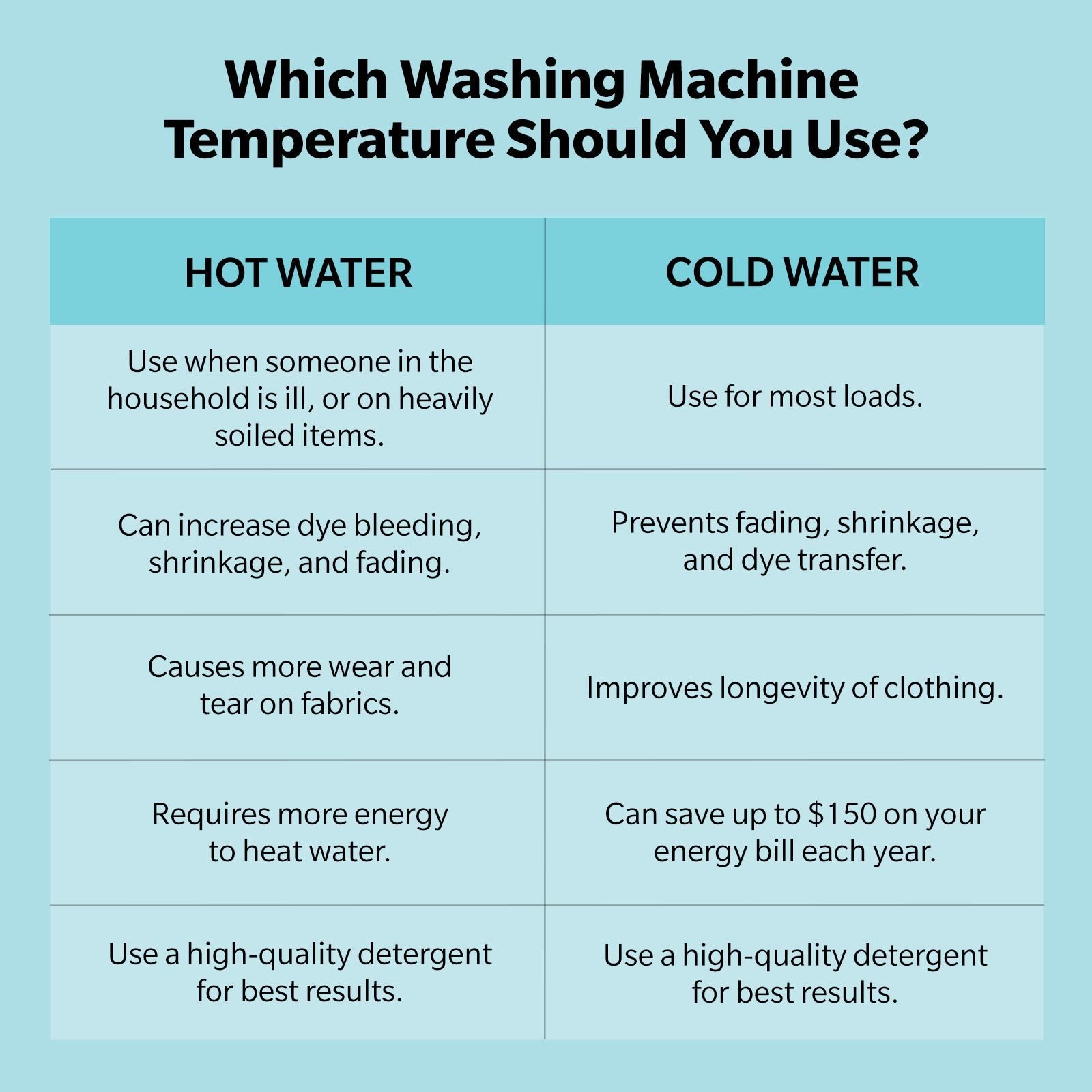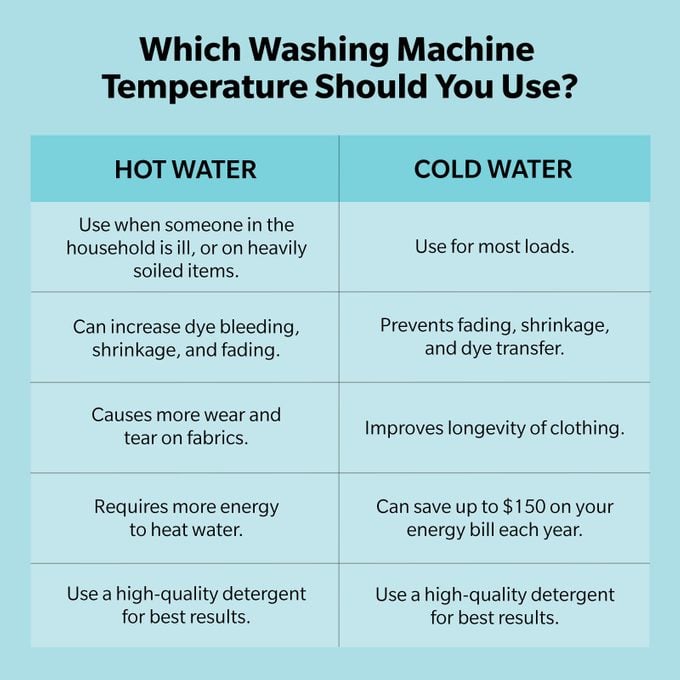Rising energy prices and rising environmental awareness has us thinking about how we can cut back. Cold water washing can help.

Can You Wash All Your Laundry in Cold Water?

Ask people how to do laundry, and you’ll likely hear conflicting opinions. My mom strictly separates whites, colors and delicates, washing them in hot, warm and cold, respectively. She’d be aghast at the idea of tossing everything in together and washing all her clothes in cold water.
My friends with young kids and full-time jobs don’t have that problem. Is it washed? Good enough! And here’s a new one: One guy I know separates his household’s clothes by person. His son gets a load, his daughter gets a load, and so on. (I suppose that would make it easier to fold and put away!)
What about water temperature? If you ask Energy Star, cold water works just fine for everything. But does cold water really get things clean, or is it just about saving money and resources? I asked a pro about it.
On This Page
Benefits of Using Cold Water To Wash Clothing
Textile expert Frej Lewenhaupt, cofounder and CEO at Steamery, says cold water saves energy and gets your clothes clean, so it should always be your go-to. Cold water works great for today’s synthetic blends, delicates, workout gear and clothes that aren’t heavily soiled, Lewenhaupt says.
Heating water takes a lot of energy — up to 90% of what’s used during a wash cycle, according to Energy Star. By switching to cold water for every load, Energy Star says you can save about $66 a year on your energy bill. That’s based on 300 loads per year, the average number for U.S. families. Your savings may vary depending on your laundry habits.
Cold-water washing reduces wear and tear on clothes, too, which helps them last longer. The benefits go beyond longevity, though. Keeping clothing intact means fewer synthetic microfibers released into our wastewater, and ultimately, the oceans. Microplastic pollution wreaks havoc on marine life, and laundry is a significant cause of this growing environmental problem.
When Is Warm or Hot Water Better?
Lewenhaupt says that while cold water works well for most things, it’s wise to increase the temperature to warm for heavily-stained cotton clothing. And sheets and towels can handle a hot water wash. When in doubt, always check the label. Manufacturers usually have specific care instructions.
Washing our clothes in any temperature — even cold — greatly reduces common household germs, according to researchers at the University of Arizona. But upping the temp to hot, or sanitize if your washer has that setting, is smart when someone in your household is sick.

So, Can You Just Use Cold Water?
Absolutely. “To keep clothes looking their best, we recommend always washing in cold water if possible,” Lewenhaupt says.
Modern laundry detergents contain enzymes and surfactants that are effective even at cold temperatures, Lewenhaupt says. That means you never have to worry a cold water wash will leave behind dirt and grime.
Tips for Washing Clothing in Cold Water
If you’re ready to switch to cold, here are some tips for getting the best results:
- Sort your clothes: Using the same temp doesn’t mean washing your jeans with your delicates. Your clothes will last longer and look better if you sort. Sort by color, too, or you risk pink whites.
- Use less detergent: Excess soap sticks to your clothes, making them stiff and dingy. How much detergent do you need? Less than you think: Two tablespoons for a full load. Really, that’s all you need!
- Use liquid detergent: Powdered detergents blast away stains but don’t dissolve as well in cold water short cycles. Liquid detergent is your best bet.
- Use cold water detergent: The increased popularity of cold water washing means companies are reformulating (or remarketing) their products.




















